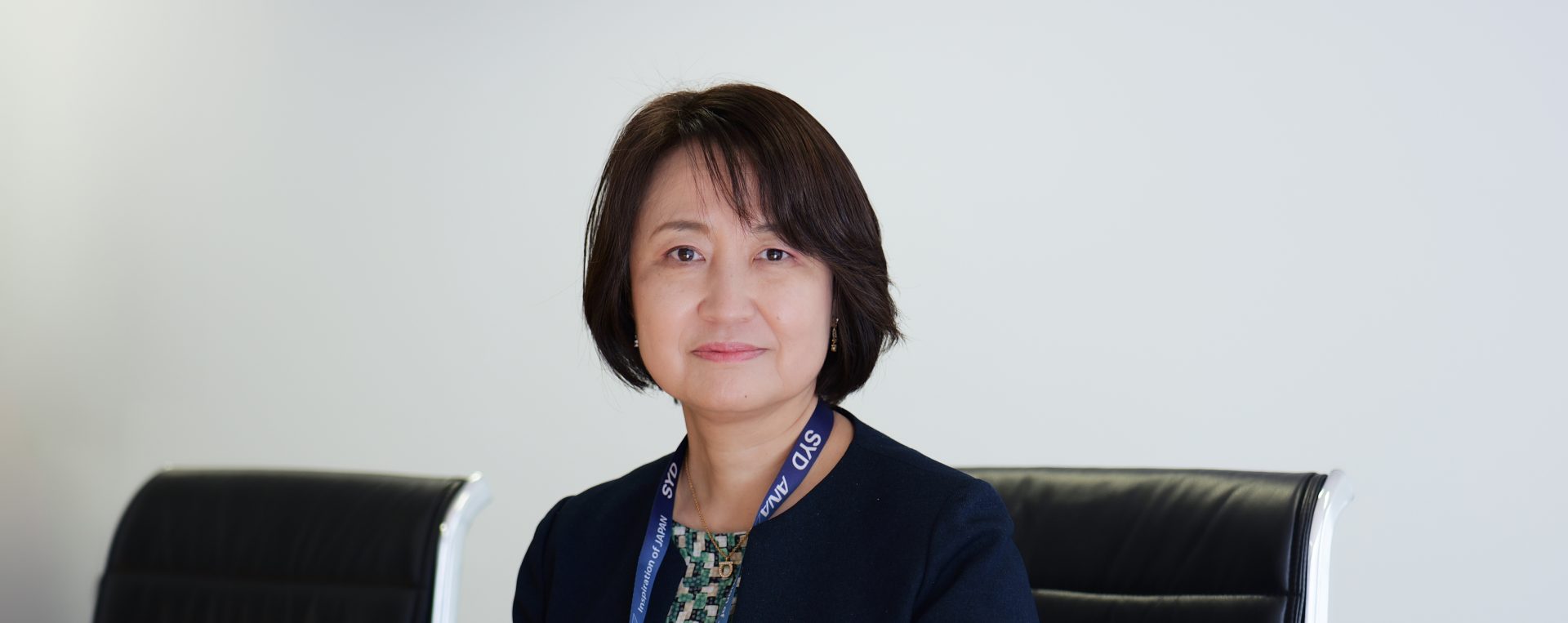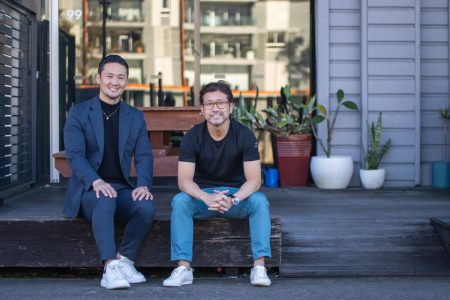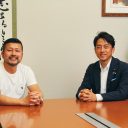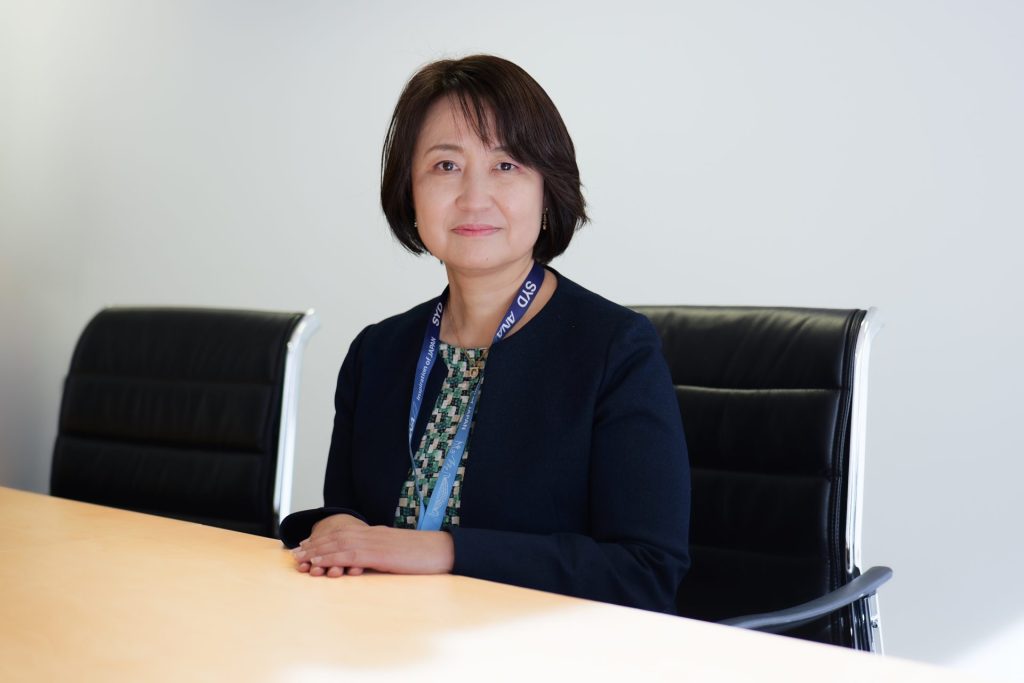
In this series, I asked Sydney-based Japanese businesswomen for their stories. On behalf of All Nippon Airways (ANA), Maki Matsuzaki, Managing Director of the Australia/Oceania Region, and the General Manager of the Sydney Branch took time out of her busy week to share her story. (As an editor’s note, this interview was held in Japanese. The interview has been edited for clarity.)
Words and Photography: Sachi Kobayashi
Born and raised in Tokyo, Maki Matsuzaki describes herself as an Edokko, or edo-child, although she now calls many places home. In Japanese, Edokko is a word which refers to the child of a family which has lived in Edo, the old name for Tokyo, for generations. Matsuzaki speaks fluent Japanese and English and has studied German at University. Her career at ANA spans over thirty years.
Matsuzaki passed ANA’s general career exam in her late twenties, joining a cohort of fewer than thirty women in analogous positions at the time across the entire company. Although this was about a decade after Japan’s Equal Employment Opportunity Law came into effect, legally mandating expanded access for women, cultural and institutional barriers remained entrenched. As is the case in many Japanese companies, promotion at ANA requires passing a difficult formal management exam. Most people sit this exam in their late thirties, but Matsuzaki had her first child at thirty-three, and between balancing work, housework, and raising two children, did not undertake the management exam until she turned fifty.
Today, she holds the title of both Managing Director for the Australia and Oceania Region, and General Manager of the ANA Sydney Branch. This is her story.
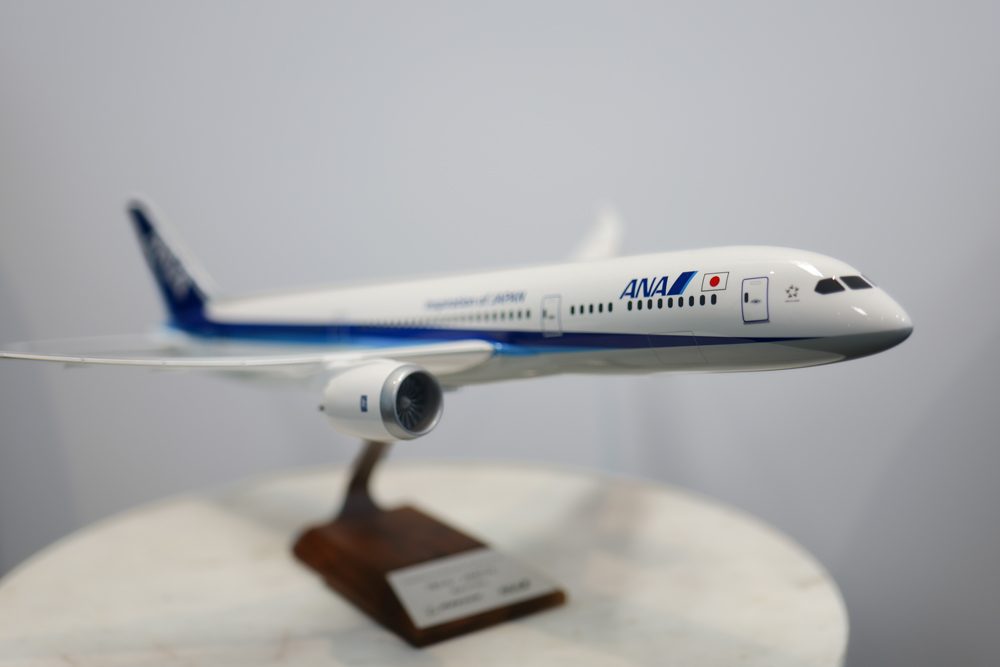
─Can we begin with life in your thirties, when most people undertake the formal management exam?
When I was in my thirties, my children were small, and I had to work on the weekend because I couldn’t work overtime during the weekdays as was the norm. My eldest son joined a baseball team, and I had to take him to the baseball team all weekend. I really didn’t have any time for myself. Back then, there were no systems like part-time work, reduced working hours, or WFH, so I had to go to the office every day and arrange a babysitter to complete overtime work. Therefore, working overtime meant further expenses. As I grew older, I began to wonder if I could remain like this for good.
─What changed when you turned fifty?
When I turned fifty, my youngest child was only about ten years old. I was still busy, but when I thought about the future trajectory of my life, I thought that if I didn’t act now, I wouldn’t be able to act again. I talked to my children about it, and asked, “Can mum take the management exam?” Naturally, my children said, “Sure,” but I wondered if they fully understood the implications. I took the exam. I became a manager, and my life really changed. Until I was fifty, I would have never even imagined that I could work at an overseas branch, let alone as a branch General Manager. I took the exam, and immediately became a section manager (a senior leader), then a director, and then a GM. In just five years or so, my environment changed drastically. I was transferred here to Sydney. I’ve always wanted to go abroad, and my dream came true.
─Having come to Australia from Japan, how did you find the environment in terms of gender equality?
I think Australia is probably more advanced in gender equality. For example, when I go to a conference or events for Japanese Societies in Australia, there are only a couple of female participants in the room. There’s still a long way to go. When I go to local industrial events instead, about half of the people are women, and I don’t stand out, I can be normal.
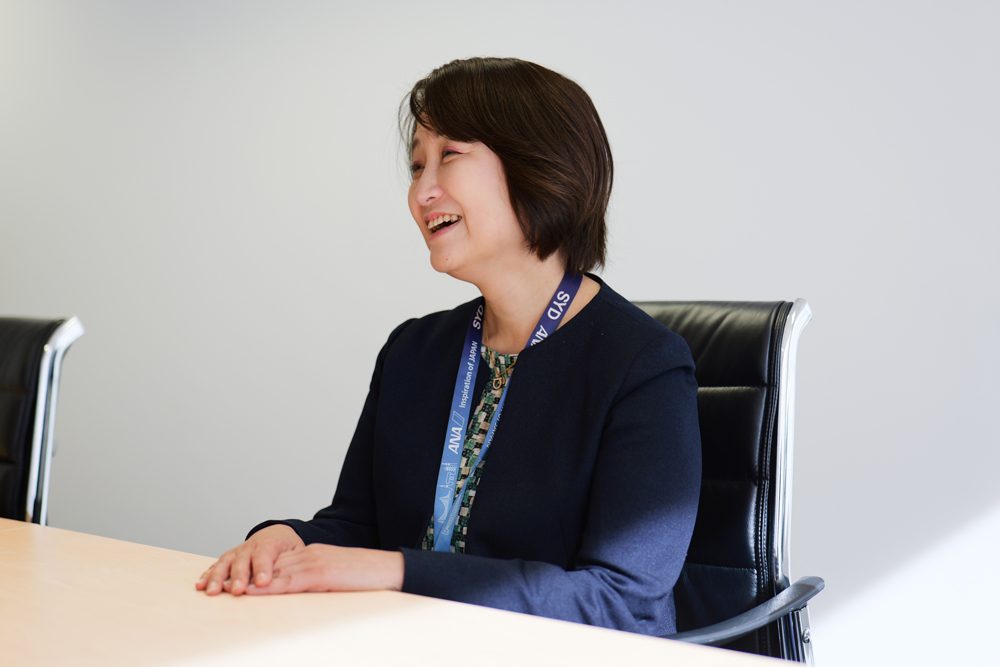
There is a possibility that society will judge women
─What kind of support do you think is needed in both countries? I’ve had this conversation with a few people, and I have heard some mixed feelings regarding preferential hiring. Quotas seem to divide opinion, but if we acknowledge the structural challenges women face, is some targeted support necessary to create real opportunity?
It’s difficult to balance. I was talking to an Australian businessman the other day, and he said, in Australia these days, for example, when a CEO resigns and they are looking for a replacement, they tend to look for a woman first. But we wondered whether that’s really the right thing to do, and if it would not be better to look for someone with the ability to be the CEO, and then if there is a woman among the candidates, we should make her a CEO.
I think expectations are relevant here. It’s never good for someone without ability to take a certain level of position, and when a man is no good, we say, “That person is no good,” but when a woman is no good, there is a possibility that society will judge all women as no good. It seems unfair, but I think these pressures are important to discuss. If there are women among the qualified candidates, I think it’s great to hire them, but if there are none, there’s no need to go out of your way to look for women just because there aren’t any. As for what more can be done, I think providing opportunity is very important, and that’s not just positions, but the education and training that comes before, which was something I wasn’t able to receive when I was young. I think there should be more and more opportunities for women, regardless of whether they are single, married or have children. Japanese companies should confirm women’s wills and wishes before making judgments.
─It would be better if there were more equal opportunities.
Exactly. When I was young, women were rarely given opportunities. And, because there was no guidance, it was only later that I realised the company was providing educational opportunities for the men. I think opportunity is the keyword. I think there needs to be more support for equal opportunity.
I also believe that people of my generation should support young people more. Moving forward is really important, and rather than focussing on myself, if there are young people who are trying to do their best, I think my role is to encourage them forward.
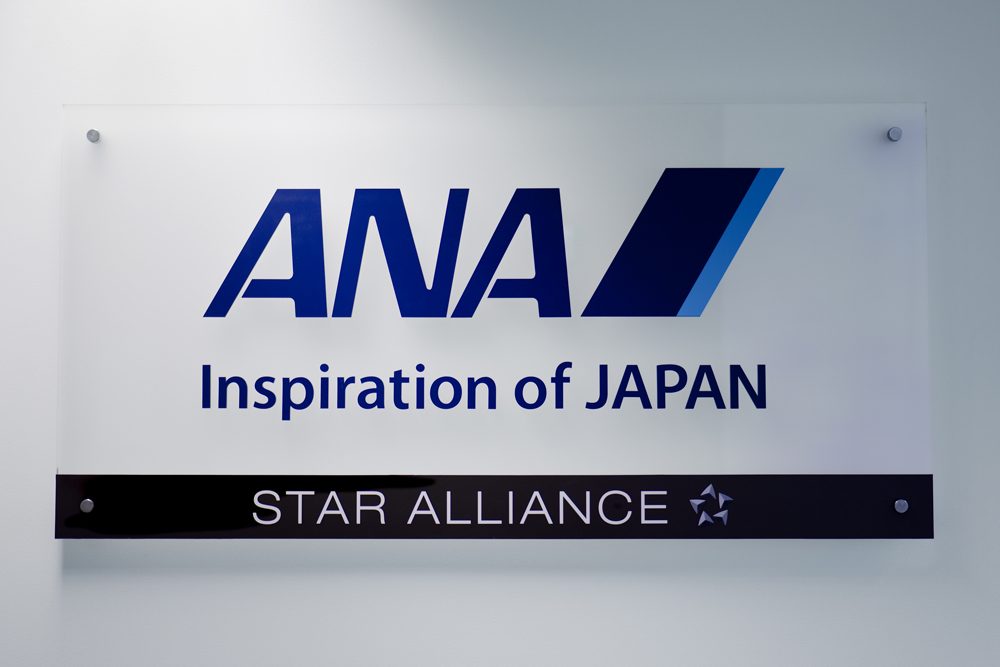
─If we go back to your point about the consequences of a woman’s failures as compared to a man’s, where it rests upon her gender as a whole, do you see a lot of pressure on young women?
I think there is.
─What should young women do when they hear that?
When young women hear that, they might end up wondering, “What should I do?” I think it’s important for people to realise they can advocate for themselves. They need to give themselves permission to dream bigger and step forward, to appeal to the next person they see and say, “I want to do this.”
─I have to work on this confidence.
Right. Of course, it’s not enough to just do it, we need to advocate for and help others as well. That’s why I’m doing interviews like this with you today. It’s important.
─Thank you!
Nowadays, some men think that women have a slight advantage, and I think that could be partially true. But men have had the advantage all this time, so if we have a little advantage now, don’t get angry.
─When men hear about this possible advantage, they might feel that something is being taken away from them. I think that outlook is a shame. If we work on gender equality, the idea is that both men and women should be better supported. For example, if we promote flexible work arrangements, alongside maternity leave we are advocating for paternity leave for men.
Yes, I hope that will be the case, but I think Japan is still not like that. When a working mother needs to go on a business trip, she will have to make all kinds of arrangements for their children, but what about the father? If he goes on a business trip, he can go on a business trip normally without thinking twice. When I went on a business trip, I had to figure out who to leave my children with on this or that day, arrange lunch and dinner, and make detailed arrangements. I managed to survive somehow. Now I have confidence it will work out because I’ve been through so many things so many times.
The more I go, the more confident I become, and I am surprisingly strong
─How did you overcome the anxiety of the management exam?
In my experience, I have found that once I take a step, I wonder why I was so scared. The more I go, the more confident I become, and I am surprisingly strong. If I work hard, people around me will support me. If the people around me work hard, I will work hard and become more courageous. I hope that in the future, more women in the company get the chance to do what they want to do, including working in overseas offices, and I think it would be great if the young women could think that it’s totally possible.
The main obstacle, the wall I face, is the wall of time. Especially when I had my first child, working overtime was unfortunately the norm, so it was difficult to manage my time, and I just prioritised some things and didn’t do others. There was no choice. As soon as my children were born, they rose to the top of my priorities, and since their health is the most important thing, I was very careful about their diet. But to be honest, I was a bit lazy when it came to cleaning. I didn’t wear glasses at home to avoid looking at the dust (laughing). There was a necessary priority chain. I think it’s probably changed and improved now because there are schemes like part-time work and WFH, so it’s a lot more flexible. It was very difficult back then.

The invisible world opened up and became brighter
─When I was writing this article, I thought about the bridge between Japan and Australia, and I wanted to convey a little bit about Japanese culture, work styles, and ways of thinking. As much as ANA is a cultural bridge, it really does physically bridge the two countries together.
That’s beautiful. It really is a physical bridge, and since we operate to Haneda Airport two flights a day from Sydney, you can fly to Tokyo and go anywhere in Japan from there. I’m very confident in the sense that I can introduce the country of Japan from one end to the other.
We are not only selling ANA tickets, but we are a representative of the country of Japan itself. In the sense of a bridge, I think it’s great that we can connect various places around the world, not just Japan.
─What will it take to move forward?
When it comes to women, Japan still has a long way to go, so I hope we can move forward a little more like Australia. I’m trying my best now. As I said earlier, the reason why I didn’t take the management exam until I was fifty was because I was anxious, scared and lacked confidence. I had imagined, if you become a manager, you have more responsibility, but less time with your children. What if I have to work overtime and can’t pick up my children, what if my children suddenly get sick and I can’t attend an important meeting? I couldn’t take a step forward because I was worried about what to do if something like this happens. But the environment has improved a lot, and now you can work part-time, and there are various sitters and choices such as the WFH scheme. Therefore, I decided to muster up the courage to take a step forward, and when I did, I found something fun, not the fear I thought I would have, and the invisible world opened up. It became brighter. That’s a view I would never have seen if I hadn’t taken that first step, and I wouldn’t be here now.
─This view too (looking at the view from their office).
Yes, this view too. Because if I hadn’t become a manager, I never would have made it here. If I hadn’t done tried, I might not have even known that the view I could see was completely different. In that sense, I hope you always have the courage to take a step forward. It is better to act and repent than not to act and regret. Regret is regret, but to regret not doing something is much worse.
─Yes, that’s right.
Even if there are regrets after having tried something, I don’t think it’s all that bad.
─At least you tried it once, right?
Right, you did it… Even if afterwards, you say, “I shouldn’t have done it!” I think the regret for not doing something is bigger. Even now I think that I should have taken the management exam sooner, before I turned fifty, but there’s no scorching heat anymore.
─I’m glad you did it.
I’m so glad I did it, even if I was fifty. It’s never too late. It’s never too late, so I hope that when you think it’s your time, you can take your step forward.
─That’s wonderful. Thank you.
All Nippon Airways
Writer’s voice
Sachi Kobayashi
As an intern at Nichigo Press, I was interested in producing a limited series exploring the lived experiences of female professionals in Sydney. As a mixed-race writer navigating expression in my second language, I wanted to hear others express their perspectives and their stories freely in a way that I could not yet do myself. Within a steep learning curve, the series gradually became a space where I honed my ability to ask sharper questions and engage more thoughtfully with their answers. In amidst this all, I came across several truly remarkable businesses. I remain grateful to the generosity of all the women who participated in this project. All interviews were held entirely in Japanese, and I plan to publish them in both English and Japanese.
